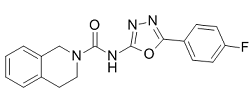However, transplantation of mesenchymal cells was neuroprotective and promoted regeneration of retinal nerve. In contrast, studies demonstrated that mesenchymal cells can achieve the neuroprotective effect via secretion of several immunomodulatory and neurotrophic factors, including TGFb1, CNTF/NT-3, and BDNF. By considering that hUCBSCs contain both the hematopoietic stem cells and mesenchymal stem cells, our observation suggest that immunomodulatory and neurotrophic factors may also play a neuroprotective role. In this study, the peak TUNEL-positive cells were observed at 72 hrs and a reduction appeared at 1 week post injury in the injury group. In contrast, the RGC amount progressively decreased with time. RGC may die after traumatic optic nerve damage through apoptosis, necrosis and degeneration. The lack of correlation between RGC amount and TUNEL-positive cells suggested that other causes, such as degeneration might also be responsible for the RGC loss. The most novel finding in this study is that transplantation of hUCBSCs interfered with ER stress-related proteins expression. Previous reports revealed that induction of ER stress-related proteins CHOP and/or GRP78 expression were involved in the tunicamycin or NMDA induced apoptosis in RGC in vitro and in vivo. Tunicamycin is an inhibitor of N-linked glycosylation. Reduction of the N-glycosylation of proteins causes an accumulation of unfolded proteins in the ER and thus induces ER stress. The accumulation of unfolded protein can stimulate GRP78 expression. GRP78 in turn works to restore folding in misfolded or incompletely assembled proteins. In addition, NMDA induces CHOP protein and apoptosis in the ganglion cell layer and the inner plexiform layer, suggesting  that ER stress may be a factor in retinal injury. In this study, both GRP78 and CHOP were stably expressed from 3 hrs to 1 week after optic nerve injury. However, transplantation of hUCBSC significantly AbMole Dimesna increased GRP78 expression and reduced CHOP expression at every time point. The increased GRP78 expression could restore folding in misfolded or incompletely assembled protein, therefore reduce apoptosis. CHOP is a central mediator of ER stress-induced apoptosis, and its expression under ER stress was reported to be up-regulated in proportion to the level of apoptotic cell death. However, our study revealed that CHOP expression does not progressively increase with time after retinal nerve injury. In contrast, transplantation of hUCBSCs significantly downregulated CHOP expression at every time point. It may be possible that decreased expression in the proapoptotic protein CHOP directly reduced apoptosis. Therefore, our study implicated that transplantation of hUCBSCs may regulate ER stress, and subsequently decrease apoptosis in retinal neurons. Repeatability, controllability, and detectability are critical characteristics of a novel nerve injury model. In this study, optic nerve injury was induced .
that ER stress may be a factor in retinal injury. In this study, both GRP78 and CHOP were stably expressed from 3 hrs to 1 week after optic nerve injury. However, transplantation of hUCBSC significantly AbMole Dimesna increased GRP78 expression and reduced CHOP expression at every time point. The increased GRP78 expression could restore folding in misfolded or incompletely assembled protein, therefore reduce apoptosis. CHOP is a central mediator of ER stress-induced apoptosis, and its expression under ER stress was reported to be up-regulated in proportion to the level of apoptotic cell death. However, our study revealed that CHOP expression does not progressively increase with time after retinal nerve injury. In contrast, transplantation of hUCBSCs significantly downregulated CHOP expression at every time point. It may be possible that decreased expression in the proapoptotic protein CHOP directly reduced apoptosis. Therefore, our study implicated that transplantation of hUCBSCs may regulate ER stress, and subsequently decrease apoptosis in retinal neurons. Repeatability, controllability, and detectability are critical characteristics of a novel nerve injury model. In this study, optic nerve injury was induced .